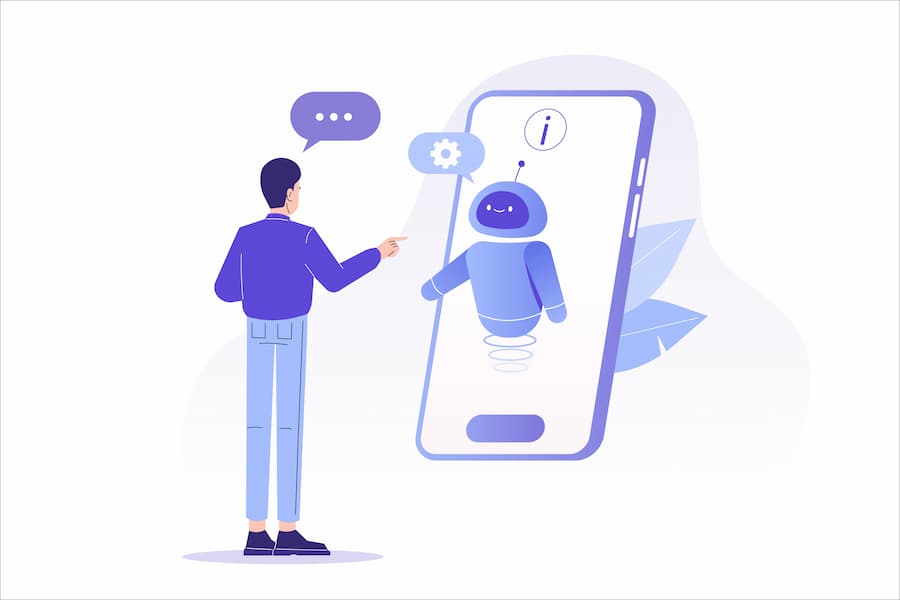AI generated content is one of the hottest topics of 2023. Discussions around the software’s potential is dominating headlines. Even in mainstream news.
To decide if, how and where the digital advertising industry should adopt ChatGPT, we need a thorough understanding of how this technology works and to what effectiveness.
To make it clear to our readers: Search4Local has never used AI content generators like ChatGPT to produce content. We have a vast team of highly talented, human content writers who produce all the copy for our websites. This blog is purely investigative and does not mean that we will begin to use AI content generators for any of the work that we do.
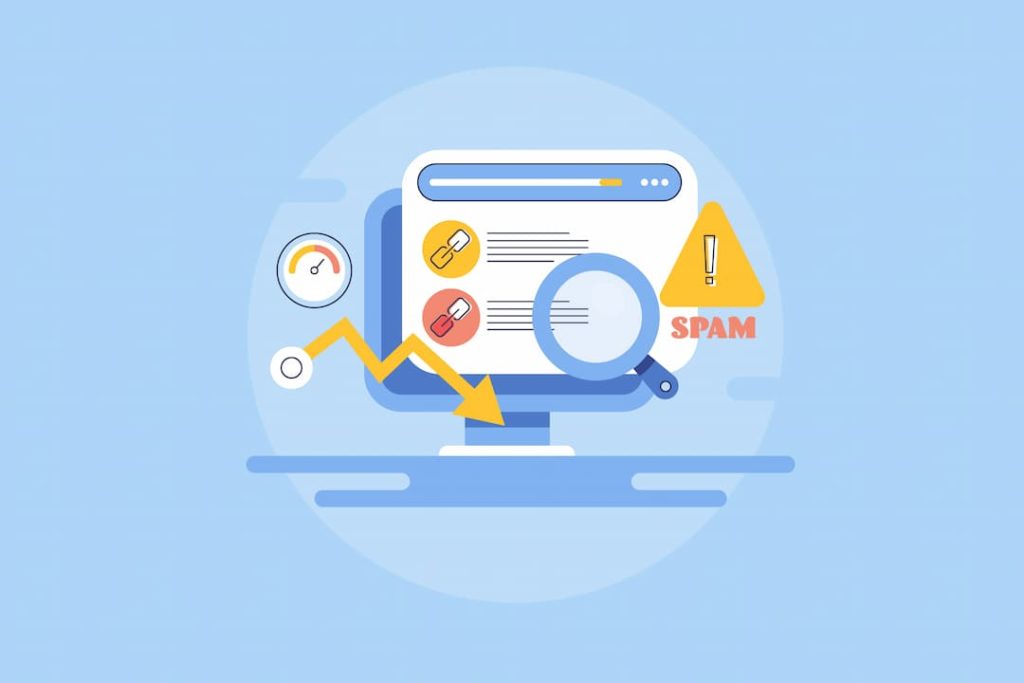
Google said in a February 2023 update that using AI with the primary purpose of manipulating ranking in search results is a violation of their spam policies. You’d think it wouldn’t get any clearer than that. However, there’s more to Google’s approach than that statement.
Google Search advocate John Mueller has said that computer-generated content is read by Google as spam. However, that doesn’t mean to say that AI content that’s been edited by a human is still identifiable as spam. Although it is still technically against the guidelines, high quality, edited AI content is unlikely to be flagged up by the spam filters, for the moment.
How Has AI Developed In 2023?
The most prominent new name in AI is ChatGPT. Launched in November 2022, ChatGPT is a chatbot that can generate dialogue. It can be used for a lot of purposes such as search and ideas generation.
To control growth and monitor language, ChatGPT gathers information from archived internet results and presents that data to users. With any indexed content or internet results from 2023 not being included. It’s intelligent and each interaction a human has with the AI causes it to learn, adapt its language and improve.
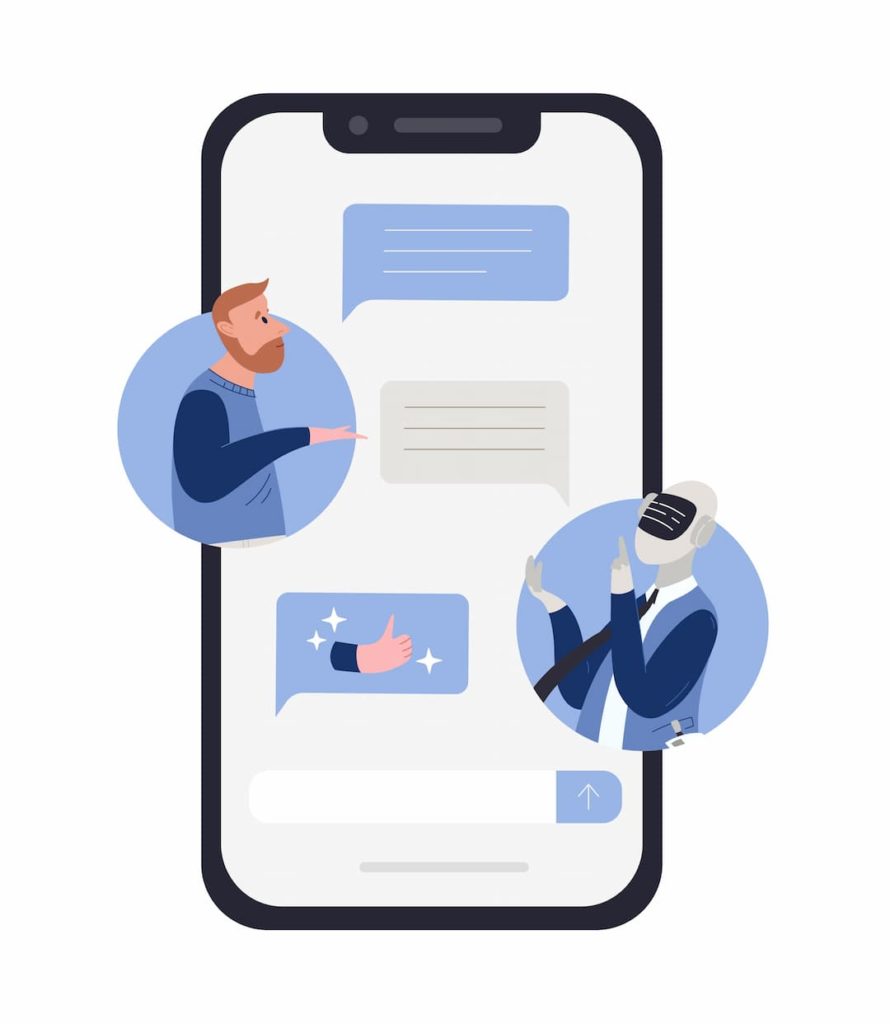
Since the release of ChatGPT, Microsoft and Google have begun marketing their competitors. Bing now has an AI-powered search with technology created by OpenAI. Google hurriedly announced Bard in response, which works in a similar way.
Are There Issues With AI?
The number one fear for content writers, business owners and SEO technicians is the almost inevitability of plagiarism and copyright infringement. Because the data is found on the internet, people are wondering whether credit should be given to the sources.
If a chatbot gives a user the answer that they want, or they feel is right for them, does the original source become redundant? And will trusted websites lose traffic and leave users ill informed?
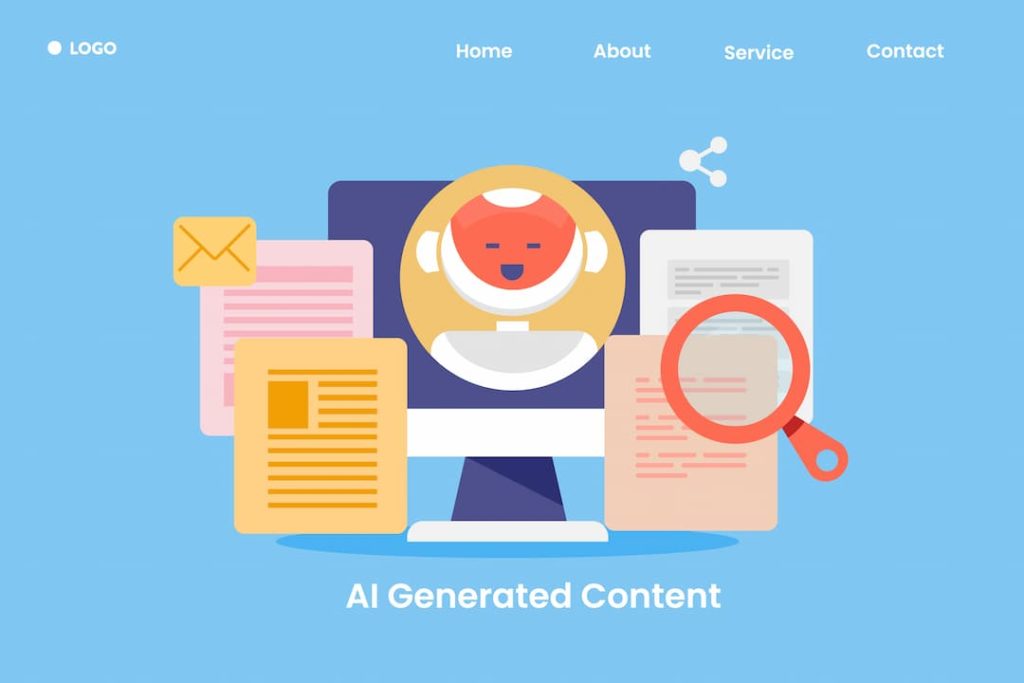
What Can AI Do?
Recent advancements in AI technology mean that it can be used to generate large amounts of content in a short space of time. With the potential to save writers a huge amount of time.
This isn’t to say that producing lots of AI content for a website guarantees an improvement, especially in the world of SEO.
Google has made it very clear that the best ranking content is helpful, reliable and people-first. If AI-generated articles are added to a site without checking and editing them for quality, it is questionable if there is any benefit at all. Especially considering all AI generated content from ChatGPT is based on articles and sources which already exist.
Google has also said that original content has a better chance of ranking. Chat GPT currently cannot formulate new concepts or give opinions, so it could never fulfil this requirement. Whereas people continuously produce ideas, report on new events, and generate content around them
Should AI Be Used In Your Digital Marketing Strategy?
This will be up to the individual. If you do not have the time to generate content for your site, you might benefit from using AI. You will, however, still need to have the skills to edit and polish the writing. Which takes time.
This poses the question, with the time taken to check AI content, why not create it yourself? Editing requires skills in writing to proof and fact check. It makes more sense to use this time to research and produce original pieces of writing.
Quickfire Questions
What Is AI?
AI stands for Artificial Intelligence. It refers to anything that uses a computer to carry out a task that a human might normally do.
What Is ChatGPT?
It is a software that was released in November 2022. ChatGPT is a development of InstructGPT. You can ask ChatGPT questions and expect to get a conversational response, rather than a robotic one.
Why Is AI Important Now?
Right now, there’s a lot of talk about how AI is revolutionising online search. You can input a query and get an intelligent, conversational response in seconds. This has positive and negative potential. It can produce answers at fast speeds, but there’s no guarantee that the answer will be accurate.
ChatGPT is designed to generate words. Whereas search engines like Google mediate the answers to questions and searches against complex algorithms which consider many variables. Giving reliable answers and recommending the most trusted sources.
Let us now look at how ChatGPT works.
A First Experience With AI
In a move that is completely hilarious in its hypocrisy, ChatGPT’s robot software begins its interaction by asking you to verify that you are not a robot. After assuring them that you are indeed flesh and bone, you might have the misfortune of being greeted with this screen:
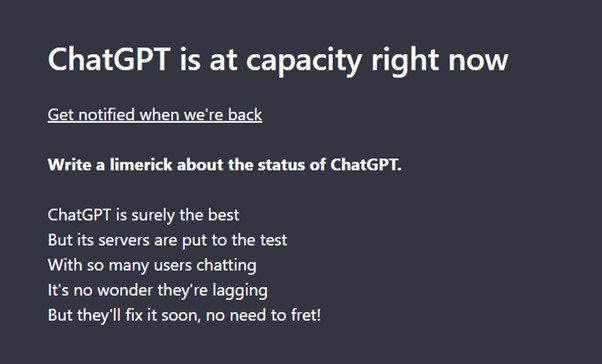
This is a little underwhelming, given how ChatGPT is the forefront of media attention currently, and the most intelligent development in AI to date.
ChatGPT state that the software is in its testing phase on one of their blogs. They say that it was trained using something that they call RLHF, which means Reinforcement Learning from Human Feedback. In short, every interaction that the AI has with a human is an opportunity for it to learn, adapt, and improve.
They also confirm that the software generates ‘plausible-sounding but incorrect or nonsensical answers’. We already know that AI content needs to be fact checked, but it’s interesting that ChatGPT describe the software as having ‘no source of truth’.
A Second Experience With AI
You might remember a popular AI software from 2007. Akinator is a virtual ‘genie’ who could guess the person, object, or animal that you were thinking of by asking you questions. It was, for the most part, quite successful. It seems like a good test to see if ChatGPT also has this ability.

No such luck. ChatGPT was not willing to entertain this thought. It seems like ChatGPT missed an opportunity to show knowledge by making a reference to Akinator. For a bit of fun and comparison, let’s see if Akinator could guess if a user is thinking of ChatGPT. And lo and behold…

It would be easy to conclude that Akinator is more sophisticated, despite being over 15 years older than ChatGPT, if you were to base your results on this one test alone. But that would be forgetting that Akinator has been created for one, awfully specific purpose.
It would be prudent to give ChatGPT a second chance. To help get the ball rolling, being more specific about the purpose of the chat might help. Let’s see what happens if you tell ChatGPT that you’re thinking of an object, animal, or person.

No such luck again! What’s interesting about this is that ChatGPT seems to be reluctant to ask questions. You have to feed it a lot of information to get the answers. Is the limitation the inability to interpret ambiguity? Could this be to prevent ChatGPT from giving out incorrect information? Or is it because the software is unable to know when to ask relevant questions?
When challenging this, the bot can be quite defensive.
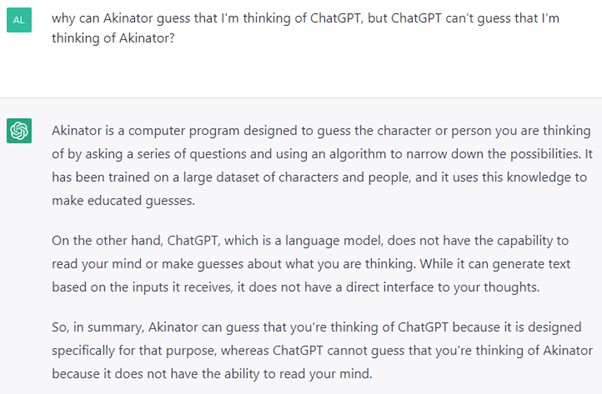
From our experience so far, the issue with some of ChatGPT’s interactions is the needlessly long-winded answers. By simply responding with ‘Akinator has a different algorithm to ChatGPT, we can’t do the same thing’, it would not be attempting to dissect the meaning of something it does not seem to understand.
Experimenting With AI For Content Generation
Many people will have a burning curiosity to see how well AI can generate content. For good reason. It could change the way that many careers look in the years to come.
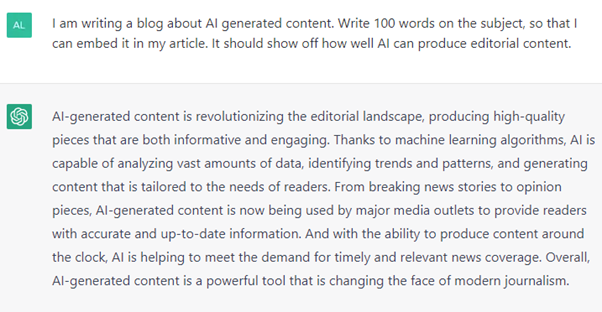
On a surface level, the content produced is good. It reads well and is grammatically correct, albeit in American English.
To put the statement that AI content is ‘engaging’ to the test, you can try pasting it into an AI detector. This example flagged as being 97% computer-generated. How does it know this?
How ChatGPT Works
To understand more about AI detection, you need to understand the inner workings. Generators like ChatGPT know which words are statistically most likely to appear after another in a piece of text.
The content is simply a prediction of which word should come next. This is combined with language processing techniques and machine learning algorithms, which means that AI continues to learn how to mimic human writing. It follows grammar rules and uses its deep knowledge of syntax to construct pieces of writing that are appropriate and make sense.
ChatGPT can be trained to talk about any topic, not answer an actual question.
AI detectors are developed to detect this. They know the typical patterns AI content displays. The detector looks at sentence structure, grammar, choice of vocabulary, style, humour and tone.
Will AI Affect The Future Of Content Writing?
AI content generation certainly has its place, but at this stage it can’t take over. The platform feeds off historical content, with no ability to research, only quote.
Google are very clear that they don’t consider artificially generated content to be useful, so it is far less likely to rank than something that is human written.
However, AI can help content writers in several ways. It is useful for ideas generation and potential keyword research. When you know what to say but not how to say it, ChatGPT could really help to get the ball rolling.
The research carried out for this article was interesting in many ways. Learning about new technology is exciting. If anything, it seems that human writing skills are going to be more important than ever.
Written by Alice Farley
